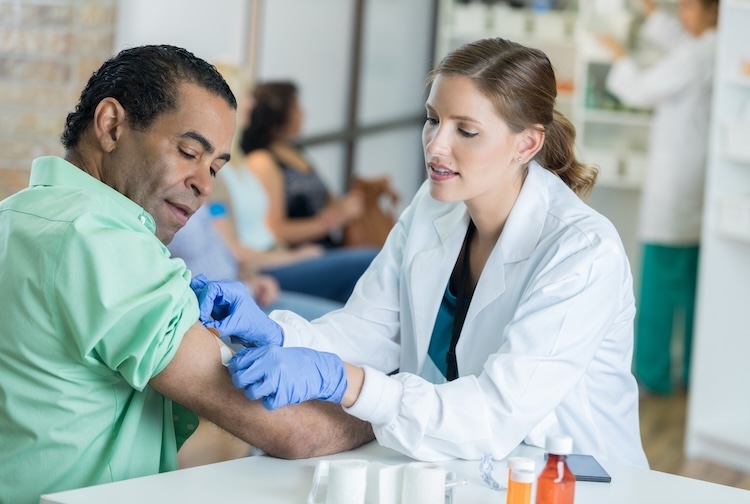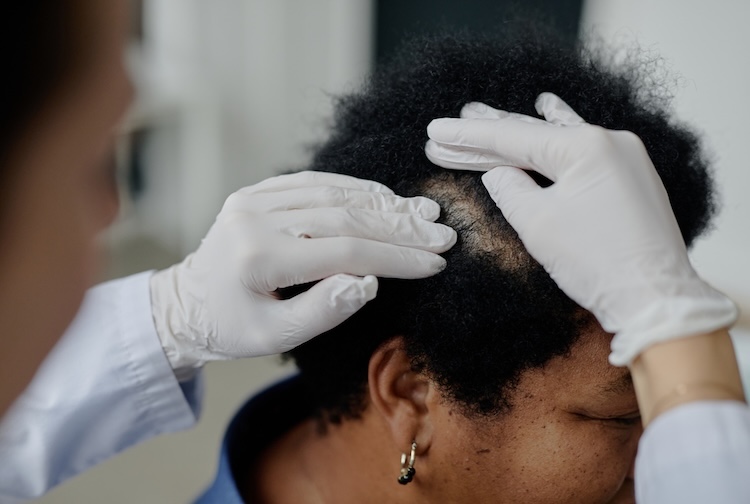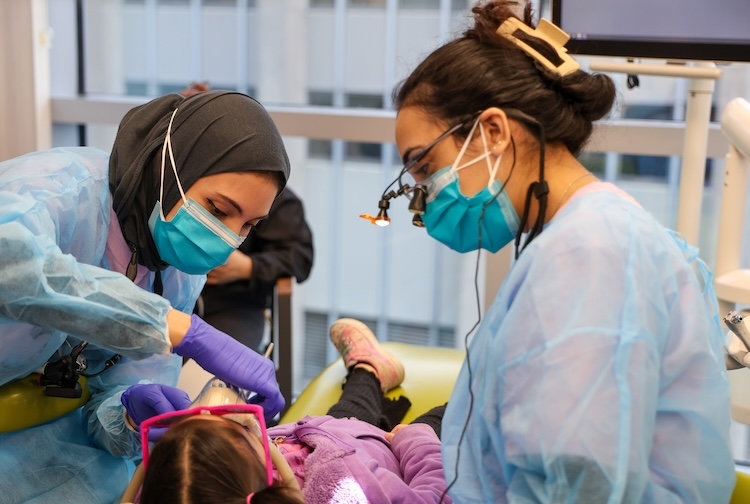What makes vaccines safe? A clear guide from a leading vaccine expert
From testing to impacts on pregnancy, VCU’s Kelly Goode, Pharm.D., answers common questions about vaccines and how safe they are.
October 27, 2025 A nationally recognized expert who teaches at Virginia Commonwealth University says getting a vaccine is a safe and effective way to reduce the severity of illnesses. (Getty Images)
A nationally recognized expert who teaches at Virginia Commonwealth University says getting a vaccine is a safe and effective way to reduce the severity of illnesses. (Getty Images)
By Mary Kate Brogan
Millions of lives have been saved since the introduction of the first smallpox vaccine nearly 200 years ago.
But in this digital age, it is difficult to sift through all the information – and misinformation – readily available at our fingertips.
Jean-Venable “Kelly” Goode, Pharm.D., a professor in the Department of Pharmacotherapy and Outcomes Science at VCU School of Pharmacy, recognizes that public trust in vaccines can be as important as the science behind their development.
“Vaccines are one of the greatest public health achievements in the past century,” Goode said. “We rarely see vaccine-preventable diseases in the U.S. Most people have never seen some of the vaccine-preventable diseases, including polio and rubella.”
Vaccines, also called immunizations, help your body fight off infections. When you get one of these shots, your immune system learns what the germ looks like, and your body can figure out how to defend itself without the dangers of the actual infection.
A leading national expert on vaccines, Goode serves as a member of the National Foundation for Infectious Diseases Board of Directors and the American Pharmacists Association (APhA) liaison to the Centers for Disease Control and Prevention’s Advisory Committee on Immunization Practices. The APhA Foundation also named Goode as one of the most influential women in pharmacy in 2022.
 Kelly Goode, Pharm.D., BCPS, FAPhA, FCCP, is a professor at VCU School of Pharmacy. (Tom Kojcsich, Enterprise Marketing and Communications)
Kelly Goode, Pharm.D., BCPS, FAPhA, FCCP, is a professor at VCU School of Pharmacy. (Tom Kojcsich, Enterprise Marketing and Communications)
Knowing the ins and outs of how vaccines work can be time consuming and, at times, confusing. Goode spoke with VCU Health News to answer common questions about how vaccines are tested and their safety.
Are vaccines safe, and how are they tested before federal approval?
Vaccines are very safe and effective. They go through many rounds of testing and review before being administered at your doctor’s office or local pharmacy.
Initially, the vaccine’s ability to cause the immune response is tested in an animal model. Researchers make changes during this stage to help improve the effectiveness of the vaccine. Effectiveness is the ability of the vaccine to protect people against the disease including preventing infection, illness, hospitalization and death.
If the vaccine passes the initial effectiveness testing, then researchers will apply with the U.S. Food and Drug Administration (FDA) to get approval for clinical trials in humans.
There are four phases of clinical trials.
- The first phase evaluates the vaccine side effects and efficacy in small studies.
- The second phase expands the number of individuals included who should be similar to the population for whom the vaccine is intended to prevent disease to gather more information about how well the vaccine works and any risks.
- The third phase expands to a larger number of individuals to confirm how well the vaccine works for the intended protection of disease and to monitor the safety of the vaccine.
- After all the testing, the company must submit an application to the FDA that includes all the data on the vaccine, details about the manufacturing process and the manufacturing facility.
The FDA is responsible for determining if the vaccine is safe and effective. After the vaccine is approved and used in the population indicated, studies and monitoring continue to evaluate the safety and effectiveness over a longer period of time.
Can vaccines give you the illness they’re meant to prevent?
Vaccines that contain a weakened live virus can cause a mild form of the illness. For example, varicella (chickenpox) vaccine can cause a mild fever and rash. Usually, it happens in individuals who have a weakened immune system. This is why some live vaccines are not recommended for people who have weak immune systems or are taking medications that suppress the immune system.
Why do some people experience mild symptoms after vaccination?
Mild and moderate symptoms such as feeling ill or a fever are common and normal after a vaccine. These symptoms are a sign that the immune system is working and learning how to develop immunity to the virus or bacteria the vaccine is meant to prevent.
Do vaccines affect fertility, pregnancy or breastfeeding?
Vaccines that are recommended during pregnancy are safe and effective and provide needed protection for infants who are too young to be vaccinated against vaccine-preventable diseases.
For individuals who receive a vaccine during pregnancy, the FDA maintains a pregnancy exposure registry that collects information from those who receive vaccines while pregnant for further research. The registries continue to gather information about any effects during pregnancy to the pregnant woman and to the developing fetus. There is no evidence that vaccines, including COVID-19 vaccines, have any impact on fertility. There are no issues to receiving a vaccine while breastfeeding or for the infant who is breastfeeding. The exception to this rule is that, as a safety precaution for infants, a breastfeeding woman should not receive vaccines for monkeypox (Mpox), smallpox or yellow fever due to the potential risk of the live virus being transmitted by person-to-person contact.
Where are the best places to look for accurate vaccine information?
More information about vaccines can be found from trusted sources on the internet, including:
- National Foundation for Infectious Diseases,
- immunize.org,
- Children’s Hospital of Philadelphia Vaccine Education Center,
- American Academy of Pediatrics,
- American Academy of Family Practice,
- American College of Obstetricians and Gynecologists and
- Centers for Disease Control and Prevention.
How do vaccines work? Find out from VCU's leading vaccine expert.




